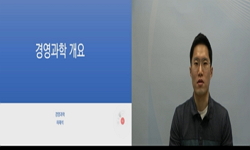The purpose of this study is to diagnose students’ cognitive attributes in mathematics and science based on the Fusion model, one of several Cognitive diagnostic models. The Cognitive diagnostic model measures several attributes from a single item a...
http://chineseinput.net/에서 pinyin(병음)방식으로 중국어를 변환할 수 있습니다.
변환된 중국어를 복사하여 사용하시면 됩니다.
- 中文 을 입력하시려면 zhongwen을 입력하시고 space를누르시면됩니다.
- 北京 을 입력하시려면 beijing을 입력하시고 space를 누르시면 됩니다.
https://www.riss.kr/link?id=A104842420
- 저자
- 발행기관
- 학술지명
- 권호사항
-
발행연도
2012
-
작성언어
English
-
주제어
수학 ; 과학 ; 인지 능력 ; 인지 진단 이론 ; 성취도 ; mathematics ; science ; cognitive attributes ; cognitive diagnosis theory ; achievement
-
등재정보
KCI등재
-
자료형태
학술저널
- 발행기관 URL
-
수록면
191-215(25쪽)
-
KCI 피인용횟수
0
- 제공처
-
0
상세조회 -
0
다운로드
부가정보
다국어 초록 (Multilingual Abstract)
The purpose of this study is to diagnose students’ cognitive attributes in mathematics and science based on the Fusion model, one of several Cognitive diagnostic models. The Cognitive diagnostic model measures several attributes from a single item and analyzes the results based on the fields of education evaluation and measurement theory. The test, composed of multiple-choice problems in mathematics and science, was administered to the eighth graders in a middle school located in Seoul. Using this data, this study examined the correlation of cognitive attributes for mathematics and science and attempted to identify the attributes that influence achievements in mathematics and science through regression analysis. The results suggest a significant correlation of cognitive attributes for both mathematics and science, as well as several abilities in mathematics that can help in solving scientific problems.
참고문헌 (Reference)
1 Goldberg, H., 26 (26): 22-24, 1989
2 김선희, "수학 평가 결과의 분석을 위한 인지 진단 이론의 활용" 대한수학교육학회 10 (10): 259-277, 2008
3 Anderson, J. O., "Using large-scale assessment datasets for research in science and mathematics education: Programme for international student assessment (PISA)"
4 DiBello, L., "Unified cognitive/psychometric diagnostic assessment likelihood-based classification techniques, In Cognitively Diagnostic Assessment" Lawrence Erlbaum Associate 361-389, 1995
5 Tatsuoka, K. K., "Toward integration of item response theory and cognitive error diagnoses, In Diagnostic monitoring of skills and knowledge acquisition" Lawrence Erlbaum Associates 1990
6 Mullis, I. V. S., "TIMSS 2007 International Mathematics Report: Findings from IEA’s Trends in International Mathematics and Science Study at the Fourth and Eighth Grades" Boston College 2008
7 Mullis, I. V. S., "TIMSS 2007 Assessment Framework"
8 Hartz, S., "Skills Diagnosis: Theory and Practice. User Manual for Arpeggio software" ETS 2002
9 Tatsuoka, K. K., "Rule space: An approach for dealing with misconceptions based on item response theory" 20 (20): 345-354, 1983
10 Wilhelm, J., "Pre-service mathematics teachers become full participants in inquiry investigations" 37 (37): 793-804, 2006
1 Goldberg, H., 26 (26): 22-24, 1989
2 김선희, "수학 평가 결과의 분석을 위한 인지 진단 이론의 활용" 대한수학교육학회 10 (10): 259-277, 2008
3 Anderson, J. O., "Using large-scale assessment datasets for research in science and mathematics education: Programme for international student assessment (PISA)"
4 DiBello, L., "Unified cognitive/psychometric diagnostic assessment likelihood-based classification techniques, In Cognitively Diagnostic Assessment" Lawrence Erlbaum Associate 361-389, 1995
5 Tatsuoka, K. K., "Toward integration of item response theory and cognitive error diagnoses, In Diagnostic monitoring of skills and knowledge acquisition" Lawrence Erlbaum Associates 1990
6 Mullis, I. V. S., "TIMSS 2007 International Mathematics Report: Findings from IEA’s Trends in International Mathematics and Science Study at the Fourth and Eighth Grades" Boston College 2008
7 Mullis, I. V. S., "TIMSS 2007 Assessment Framework"
8 Hartz, S., "Skills Diagnosis: Theory and Practice. User Manual for Arpeggio software" ETS 2002
9 Tatsuoka, K. K., "Rule space: An approach for dealing with misconceptions based on item response theory" 20 (20): 345-354, 1983
10 Wilhelm, J., "Pre-service mathematics teachers become full participants in inquiry investigations" 37 (37): 793-804, 2006
11 Basson, I., "Physics and mathematics as interrelated fields of thought development using acceleration as an example" 33 (33): 678-690, 2002
12 Tatsuoka, K. K., "Patterns of Diagnosed Mathematical Content and Process Skills in TIMSS-R Across a Sample of 20 Countries" 41 (41): 901-926, 2004
13 OECD, "PISA 2006 Science Competencies for Tomorrow's World. Volume 1: Analysis" OECD 2007
14 Templin, J. L., "Measurement of psychological disorders using cognitive diagnosis models" 11 : 287-205, 2006
15 House, P. A., "Integrating Mathematics and Science in the light of current reforms in Reform in Math and Science Education: Issues for the Classroom" Eisenhower National Clearinghouse 1997
16 Reiss, M., "Enhancing the participation, engagement and achievement of young people in science and mathematics education: introduction" 9 : 239-241, 2011
17 Embretson, S., "Diagnostic testing by measuring learning processes: Psychometric considerations for dynamic testing, In Diagnostic monitoring of skills and knowledge acquisition" Lawrence Erlbaum Associates 1990
18 Rupp, A. A., "Diagnostic measurement: Theory, methods, and application" Guilford Press 2010
19 Sherrod, S. E., "Developing science and math integrated activities for middle school students" 40 (40): 247-257, 2009
20 김선희, "Assessing Cognitive Attributes in the 8th grade Geometry" 대한수학교육학회 19 (19): 531-543, 2009
21 Thissen, D., "Are Tests Comprising Both Multiple-Choice and Free-Response Items Necessarily Less Unidimensional than Multiple-Choice Tests? An Analysis of Two Tests" 31 (31): 113-123, 1994
22 Tatsuoka, K. K., "Architecture of knowledge structure and cognitive diagnosis: A statistical pattern recognition and classification approach, In Cognitively Diagnostic Assessment" Lawrence Erlbaum Associates 1995
23 Song, M. Y, "Analysis and score reporting basesd on cognitive diagnostic models using the National Assessment of Educational Achievement" KICE 2011
24 Dogan, E., "An international comparison using a diagnostic testing model: Turkish students' profile of mathematical skills on TIMSS-R" 2008
25 von Davier, M., "A general diagnostic model applied to language testing data(PR-05-16)"
26 Hartz, S., "A Bayesian framework for the Unified Model for assessing cognitive abilities: blending theory with practice" The University of Illinois at Urbana-Champaign 2002
동일학술지(권/호) 다른 논문
-
2007 개정 초등 사회과(역사) 교과서에 나타난 역사용어의 구조적 패턴 분석
- 한국교육과정평가원
- 임영태
- 2012
- KCI등재
-
학교스포츠클럽에서 한국형 학교스포츠클럽으로의 발전 과정 탐색
- 한국교육과정평가원
- 김선희
- 2012
- KCI등재
-
- 한국교육과정평가원
- 정창우
- 2012
- KCI등재
-
- 한국교육과정평가원
- 김윤희
- 2012
- KCI등재
분석정보
인용정보 인용지수 설명보기
학술지 이력
| 연월일 | 이력구분 | 이력상세 | 등재구분 |
|---|---|---|---|
| 2026 | 평가예정 | 재인증평가 신청대상 (재인증) | |
| 2020-01-01 | 평가 | 등재학술지 유지 (재인증) |  |
| 2017-01-01 | 평가 | 등재학술지 유지 (계속평가) |  |
| 2013-12-26 | 학회명변경 | 영문명 : Korea Institute of Curriculum & Evaluation -> Korea Institute for Curriculum and Evaluation |  |
| 2013-01-01 | 평가 | 등재학술지 유지 (등재유지) |  |
| 2010-01-01 | 평가 | 등재학술지 유지 (등재유지) |  |
| 2008-01-01 | 평가 | 등재학술지 유지 (등재유지) |  |
| 2005-05-19 | 학술지등록 | 한글명 : 교육과정평가연구외국어명 : The Journal of Curriculum & Evaluation |  |
| 2005-01-01 | 평가 | 등재학술지 선정 (등재후보2차) |  |
| 2004-01-01 | 평가 | 등재후보 1차 PASS (등재후보1차) |  |
| 2003-01-01 | 평가 | 등재후보학술지 선정 (신규평가) |  |
학술지 인용정보
| 기준연도 | WOS-KCI 통합IF(2년) | KCIF(2년) | KCIF(3년) |
|---|---|---|---|
| 2016 | 0.87 | 0.87 | 1.04 |
| KCIF(4년) | KCIF(5년) | 중심성지수(3년) | 즉시성지수 |
| 0.82 | 0.77 | 1.353 | 0.81 |




 KCI
KCI






